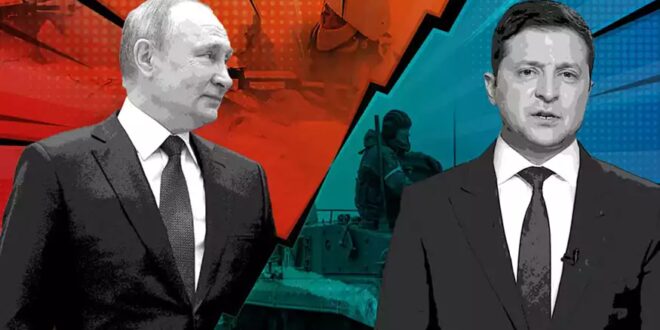Many were surprised when the Russian invasion of Ukraineexceeded the first month. Weeks and months have passed and now a year is closing with no end to the war in sight. On the other hand, every war has an end, the conditions of which are defined by an equation of brutality. Capitulation consolidates legal results through international law on the basis of the imposition of force and certain basic pre-existing norms, ignoring the human devastation, the centenary of death, maimed, refugees and generalized destruction. The next day for the international context is defined by legal and political constants, which are usually reshaped and consolidated as a result of a previous major war. The inviolability of borders and the content of territorial sovereignty of states are basic principles that have kept the planet for decades away from massive land claims. The exceptional cases of the emergence of new states (Eritrea, East Timor, South Sudan) confirmed the rule.
However, the Russian invasion of Ukraine which has kept alive a fierce war on Ukrainian soil for a year, the annexation of Crimea since 2014, the initial recognition of Donetsk’s independence in the same year and its annexation in 2022 along with neighboring regions are turning things upside down. the example that applied internationally, politically and legally. The question now returns: can the use of force legitimize a change of borders and indeed by invoking historical and ethnological arguments and claims? The path that opens to this logic leads to situations of generalized uncertainty that remind us of the eve of the two world wars, but also of other dark periods of distant history.
Even if one is not a pessimist, waiting for the new big war, one has to formulate the questions concerning the next day of the Russian-Ukrainian war. If it is assumed that Russia wins, on military terms, and Ukraine capitulates by accepting the terms of the winner, that is, recognizes the loss of territories, what will be the position of the states of the West? Certainly the recognition of new borders by illegal use of force cannot be recognized. Overturning the inviolability of borders in a large European country will certainly upset the status quo. Will territorial zones of sovereignty recognized by some states and not others be created? One should imagine the Cypriot impasse in a much larger dimension and complexity. Moreover,
The question of the protection of minorities
The protection of Ukraine’s minorities, Russians, and Russian-speakers is another issue, which seems untimely at the moment, since the invasion was done to protect and integrate these populations into Russia. However, the violation of the 2014 and 2015 Minsk Agreements on granting special rights and autonomy to the eastern provinces by the Ukrainian government and pre-accession talks with NATO, without the consent of Russia, which invokes a veto right under the agreement of 2015, laid the political carpet for the invasion. Certainly, Russia cannot invoke the right to attack and use mass force for a year, for Ukraine’s violation of the Minsk Agreements.
The future is therefore particularly problematic and concerns the entire international community. In the meantime, the millions of Ukrainian refugees who have sought refuge outside the borders are subject to the regime defined by the Geneva Convention of 1951, but also the special and even favorable EU law for them. But for how much longer? The economic stakes associated with energy resources can certainly further erode the juridical and political constants of human rights, as well as the expectation of restoring peace and security. Of course, it can also work the other way around. Let’s hope.
 Eurasia Press & News
Eurasia Press & News

